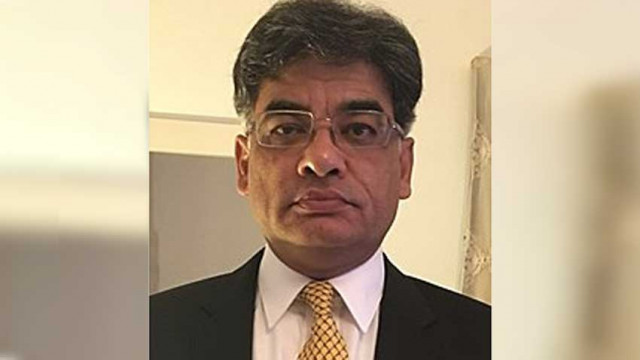Parliament cannot take ‘direction’ on legislation
AGP says only government can declare interest illegal

Attorney General for Pakistan Khalid Jawed Khan on Wednesday said that courts could not order parliament to make specific legislation.
The AGP made the remarks while appearing before a three-member Federal Shariat Court (FSC) bench headed by Chief Justice Noor Muhammad Meskanzai which heard a number of constitutional petitions filed against the interest-based financial system.
At the outset of the hearing, Quranic verses against interest were recited with translation in the courtroom, following which the chief justice sought the details of steps taken against the interest-based system in the last 15 years.
The AGP told the court that the State Bank of Pakistan (SBP) had not yet provided detail. He said that in 2001, the FSC had ordered the parliament for legislation over the matter.
He said the court could not order legislature for specific legislation and argued it was the responsibility of the state to legislate in accordance with Islamic principles.
However, Justice Syed Anwar questioned why was the state reluctant to legislate according to Islamic law. “Why is SBP using delaying tactics?” he asked and pointed out that AGP’s arguments were devoid of any reference to Islamic law and lacked the backing of any Quranic injunction.
In his response, the AGP said that since he was not an expert in Islamic jurisprudence, his arguments would be only predicated on the constitutional purview.
“Only government has the authority to declare interest illegal,” the AGP emphasised, adding that the only problem was regarding the method of fulfilling the responsibility.
Amicus curiae Babar Awan in his arguments stated that only the shariat court could review whether the law was according to Islamic laws or not. No court other than the shariat court could hear this case, he added.
He said that the court had also referred the matter of judicial commission to the parliament in the 18th Amendment.
Parliament had the power to decide whether or not to legislate on judicial observation, he added.
Read More: Govt to take allies into confidence ahead of important legislation
He said that the Shariat Court did not have the power to annul laws and it could only give its opinion to which the government would be bound.
The counsel for Jamaat-e-Islami said that it was beyond his understanding whether Babar Awan was admitting judicial jurisdiction or not.
The chief justice responded that the court also did not understand either, the arguments might become clear once they were completed.
Petitioner Iqbal Hashmi pleaded with the court to summon Governor SBP over the matter.
Upon this, the Chief Justice responded that once the arguments of the lawyers were completed, then the court would decide to summon anyone. Justice Anwar said that the issue was not whether the court had the right to hear the case or not.
The hearing of the case was adjourned till Thursday.
With additional input from APP



















COMMENTS
Comments are moderated and generally will be posted if they are on-topic and not abusive.
For more information, please see our Comments FAQ